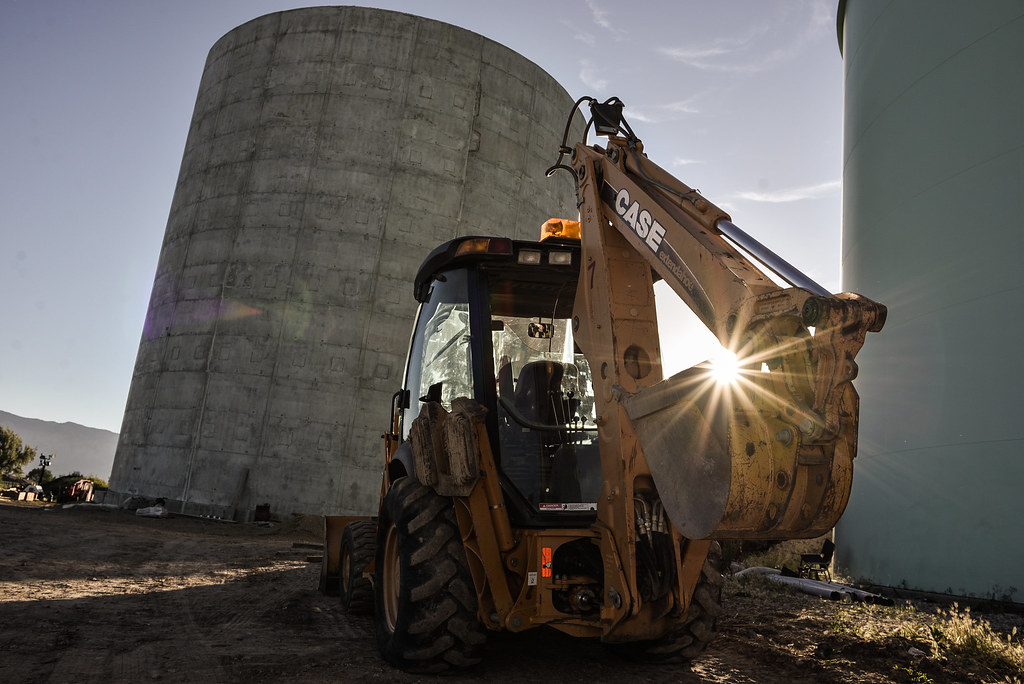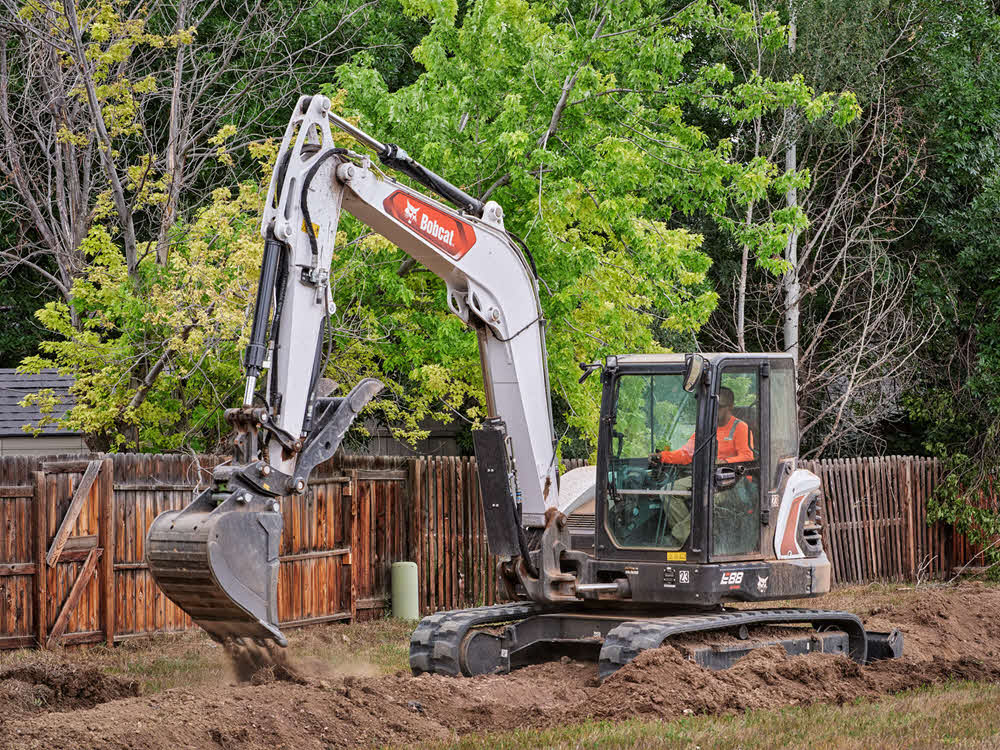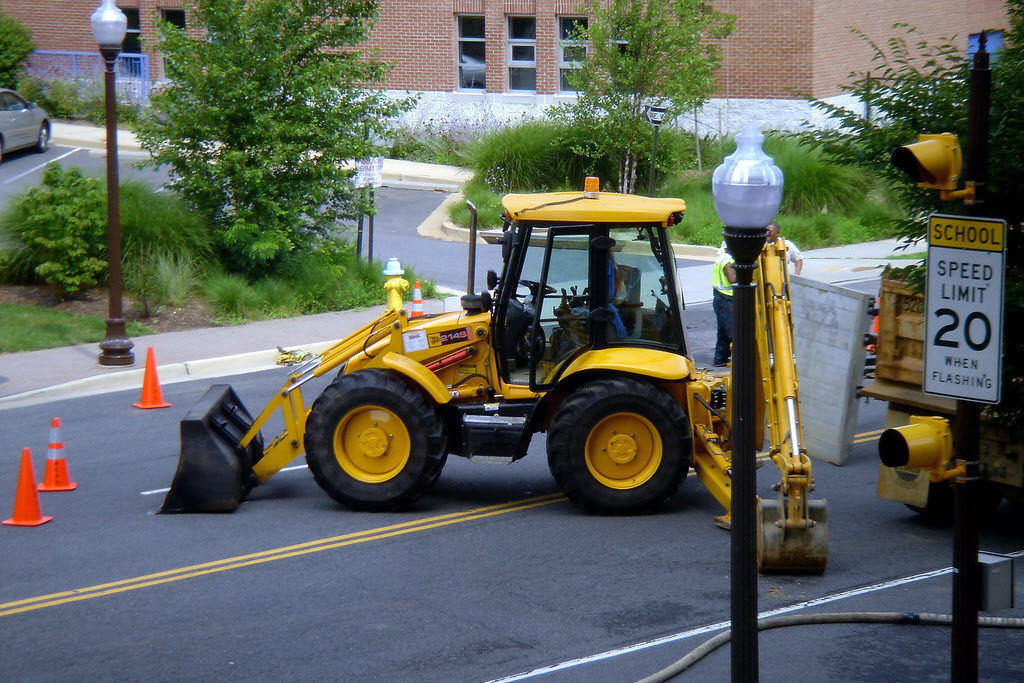Backhoe Servicesin Auburn Hills MI
Backhoe Services for Quick and Precise Excavation
We Are Locally Owned & Operated For Over 37 Years
Contact Us Today!
We Serve Businesses In And Around The Following Cities:
About Backhoe Services
Introduction to Backhoe Services in Auburn Hills
Acquiring the right equipment for any construction task presents a significant challenge for many commercial property owners. In Auburn Hills, the utility of backhoes is widely recognized for their versatility and effectiveness in these tasks. They are instrumental tools for excavation, demolition, heavy lifting, and more, making them a must-have for any commercial project. Are you contemplating embarking on a construction project, but you’re struggling to wrap your head around where to begin? Look no further. A comprehensive understanding of backhoe services, the benefits they offer, and their application in real-world scenarios in Auburn Hills is just the guide you need.
The Utility of Backhoe Services in Commercial Properties
Commercial properties vary greatly in size and the nature of tasks that different projects demand. Several commercial property projects including construction, site preparation, repairing city sewer systems or simply snow removal have been known to greatly benefit from backhoe services. One of the primary reasons why commercial property owners in Auburn Hills engage backhoe contractors is the capability and efficiency of the machine. Backhoes combine the power of an excavator and loader into one compact and highly versatile piece of equipment. With both a digging bucket at the back and a loading bucket at the front, backhoes prove to be quite the multitasker at any construction site, hence offering Aid to smoothly ace multitasks.
Benefits of Hiring Expert Backhoe Contractors in Auburn Hills
Why turn to expert backhoe contractors instead of simply renting equipment? Seasoned backhoe contractors can enrich your project with their expertise and experience. Auburn Hills offers several skilled contractors like D&J Contracting who bring added value to your commercial project. There’s an undeniable sense of assurance that comes with knowing you’re in the hands of professionals who can effectively handle potential project pitfalls and provide efficient, reliable service. Not to mention, contracting professionals relieve clients of the burden of equipment maintenance and the risk of machine-related injuries.
Consideration Factors for Backhoe Service
A number of factors are to be duly considered while contracting backhoe services, such as the estimated cost, proposed timescale, and project requirements. When choosing which backhoe company’s services to use, a consideration could be made to that of D&J Contracting; whose offerings combine affordability and quality. Besides boasting a fleet of well-maintained backhoes suited to tackle different tasks, this company is also home to a team of trained operators who are well-versed in managing the intricacies that such projects often present.
Real-World Applications of Backhoe Services
There have been several instances where businesses have profited from employing backhoe services. A common example is the role played by backhoes in the construction of Auburn Hills’ most recognized commercial buildings. In these situations, backhoes were instrumental during the initial stages of groundwork and site preparation. Commercial property owners also often engage backhoe services for seemingly smaller tasks like snow removal. During Auburn’s toughest winters, backhoes have proven vital in keeping business operations uninterrupted.
Keeping Up with Reputation with Backhoe Services
Equally as important as the backhoe’s technical capabilities is its significance in maintaining the reputation of any business. A clean, construction-free exterior for commercial properties can have a positive impact on customer perception. As such, businesses can take advantage of backhoe services to carry out regular maintenance tasks, which in turn contributes positively to their aesthetics and functionality.
Guiding your construction project to a successful end involves much more than just overseeing operations. It involves engaging the right expertise and equipment, such as backhoe services from trusted providers like D&J Contracting, to realize your vision. As you prepare to embark on your next construction project, consider the benefits of backhoe services and integrate them into your strategy for a smooth, well-executed project. Here’s to a successful commercial property in Auburn Hills!
Backhoe Services Gallery


Call Us Today to receive your Free Quote for
Backhoe Service in Auburn Hills
Serving: Auburn Hills, Michigan

About Auburn Hills, Michigan
In 1908, automobile pioneer John Dodge bought a farmhouse 3 miles (4.8 km) northeast of Auburn Heights to use as his country retreat. His oldest child, Winifred Dodge, married real estate baron Wesson Seyburn, who built his own country retreat 2.5 miles (4.0 km) north of Auburn Heights. The estate included hunting land, dog kennels, a swimming pool, horse stables, and a 5,000-square-foot (460 m) Colonial Revival house. Pontiac Township purchased the estate in 1976, and adapted the buildings for government use. Today, it is known as the Auburn Hills Civic Center.
The first use of the name “Auburn Hills,” in 1964, was by Oakland Community College. They named their campus (a former Nike missile base) at Featherstone and Squirrel roads for the town and the hilly terrain in the area. Besides Oakland Community College, three other colleges, Oakland University, Baker College, and Western Michigan University Thomas M. Cooley Law School have campuses partially within the city limits.
Auburn Hills began as Pontiac Township, including the village of Auburn, in 1821, at what is today the corner of Auburn and Squirrel roads. Situated on the Clinton River, it was named by Aaron Webster, the first settler, for Auburn, New York. His sawmill and grist mill attracted settlers to Auburn. After the streets were laid out in 1826, Auburn rivaled nearby Pontiac until the 1860s, when it lost its own prosperity. The town was renamed Amy in 1880, and it officially became Auburn Heights in 1919. Pontiac Township bordered the city of Pontiac on two sides. The township attempted to incorporate as Pontiac Heights in 1971, but was denied by state officials. Pontiac Township became a charter township in 1978, to protect itself from further annexation. In 1983, Pontiac Township merged with the village of Auburn Heights to become the City of Auburn Hills. It is not to be confused with the similarly named city of Auburn, Michigan, that exists in Bay County, near Saginaw Bay.
According to the United States Census Bureau, the city has a total area of 16.64 square miles (43.10 km), of which 16.60 square miles (42.99 km) is land and 0.04 square miles (0.10 km) (0.24%) is water.
| Census | Pop. | Note | %± |
|---|---|---|---|
| 1880 | 111 | — | |
| 1990 | 17,076 | — | |
| 2000 | 19,837 | 16.2% | |
| 2010 | 21,412 | 7.9% | |
| 2020 | 24,360 | 13.8% | |
| U.S. Decennial Census | |||
As of the census of 2010, there were 21,412 people, 8,844 households, and 4,923 families living in the city. The population density was 1,289.9 inhabitants per square mile (498.0/km). There were 9,965 housing units at an average density of 600.3 per square mile (231.8/km). The racial makeup of the city was 66.3% White, 18.5% African American, 0.3% Native American, 8.9% Asian, 2.7% from other races, and 3.4% from two or more races. Hispanic or Latino of any race were 7.8% of the population.
There were 8,844 households, of which 27.0% had children under the age of 18 living with them, 38.8% were married couples living together, 12.4% had a female householder with no husband present, 4.5% had a male householder with no wife present, and 44.3% were non-families. 33.5% of all households were made up of individuals, and 7.3% had someone living alone who was 65 years of age or older. The average household size was 2.24 and the average family size was 2.90.
The median age in the city was 31.4 years. 19.4% of residents were under the age of 18; 17.8% were between the ages of 18 and 24; 31.9% were from 25 to 44; 21.6% were from 45 to 64; and 9.4% were 65 years of age or older. The gender makeup of the city was 48.4% female and 51.6% male.
As of the census of 2000, there were 19,837 people, 8,064 households, and 4,604 families living in the city. The population density was 1,194.5 inhabitants per square mile (461.2/km). There were 8,822 housing units at an average density of 531.2 per square mile (205.1/km). The racial makeup of the city was 75.92% White, 13.22% African American, 0.32% Native American, 6.33% Asian, 0.04% Pacific Islander, 1.56% from other races, and 2.61% from two or more races. Hispanic or Latino of any race were 4.50% of the population.
There were 8,064 households, out of which 26.7% had children under the age of 18 living with them; 43.0% were married couples living together; 10.5% had a female householder with no husband present and 42.9% were non-families. 33.1% of all households were made up of individuals, and 6.0% had someone living alone who was 65 years of age or older. The average household size was 2.25 and the average family size was 2.92.
The age distribution is 20.4% under the age of 18, 15.9% from 18 to 24, 38.1% from 25 to 44, 18.2% from 45 to 64, and 7.3% who were 65 years of age or older. The median age was 31 years. For every 100 females, there were 98.3 males. For every 100 females age 18 and over, there were 97.5 males.
The median income for a household in the city was $51,376, and the median income for a family was $60,849. Males had a median income of $45,686 versus $34,015 for females. The per capita income for the city was $25,529. About 3.9% of families and 6.3% of the population were below the poverty line, including 6.4% of those under age 18 and 4.4% of those age 66 or over.
School districts serving sections of Auburn Hills include Avondale School District, Pontiac School District, and Rochester Community Schools.
The Avondale School District operates two elementary schools in the city limits: R. Grant Graham Elementary School and Auburn Elementary School. Portions of Auburn Hills in ASD are zoned to these schools. All ASD residents are zoned to Avondale Middle School in Rochester Hills and Avondale High School in Auburn Hills. Other ASD facilities in Auburn Hills include the district administrative offices and Avondale Montessori. A Pontiac school district school, Will Rogers Elementary School, is located in northeastern Auburn Hills.
Private schools in Auburn Hills include:
- Auburn Hills Christian School
- Oakland Christian School
Private schools near Auburn Hills:
- Notre Dame Preparatory/Marist Academy, Pontiac
- Holy Family Regional School (HFRS) – Consists of a grade PK-3 North Campus in Rochester and a 4-8 South Campus in Rochester Hills. Two churches in Auburn Hills designate HFRS as the parish school: St. John Fisher Chapel and Sacred Heart of the Hills. The first two sponsored the school from the beginning and the other three joined later, with Sacred Heart being the final one.
The main campus of Oakland University sits within Auburn Hills. Oakland Community College, Baker College, and Western Michigan University Thomas M. Cooley Law School are also situated in Auburn Hills.
Call Us Today to receive your Free Quote for
Backhoe Service in Auburn Hills
Related Services in Auburn Hills, Michigan
We Serve Businesses In The Following Zip Codes:
48007, 48015, 48021, 48026, 48035, 48036, 48038, 48042, 48043, 48044, 48045, 48046, 48047, 48048, 48050, 48051, 48066, 48071, 48080, 48081, 48082, 48083, 48084, 48085, 48088, 48089, 48090, 48091, 48092, 48093, 48098, 48099, 48225, 48230, 48236, 48310, 48311, 48312, 48313, 48314, 48315, 48316, 48317, 48318, 48397